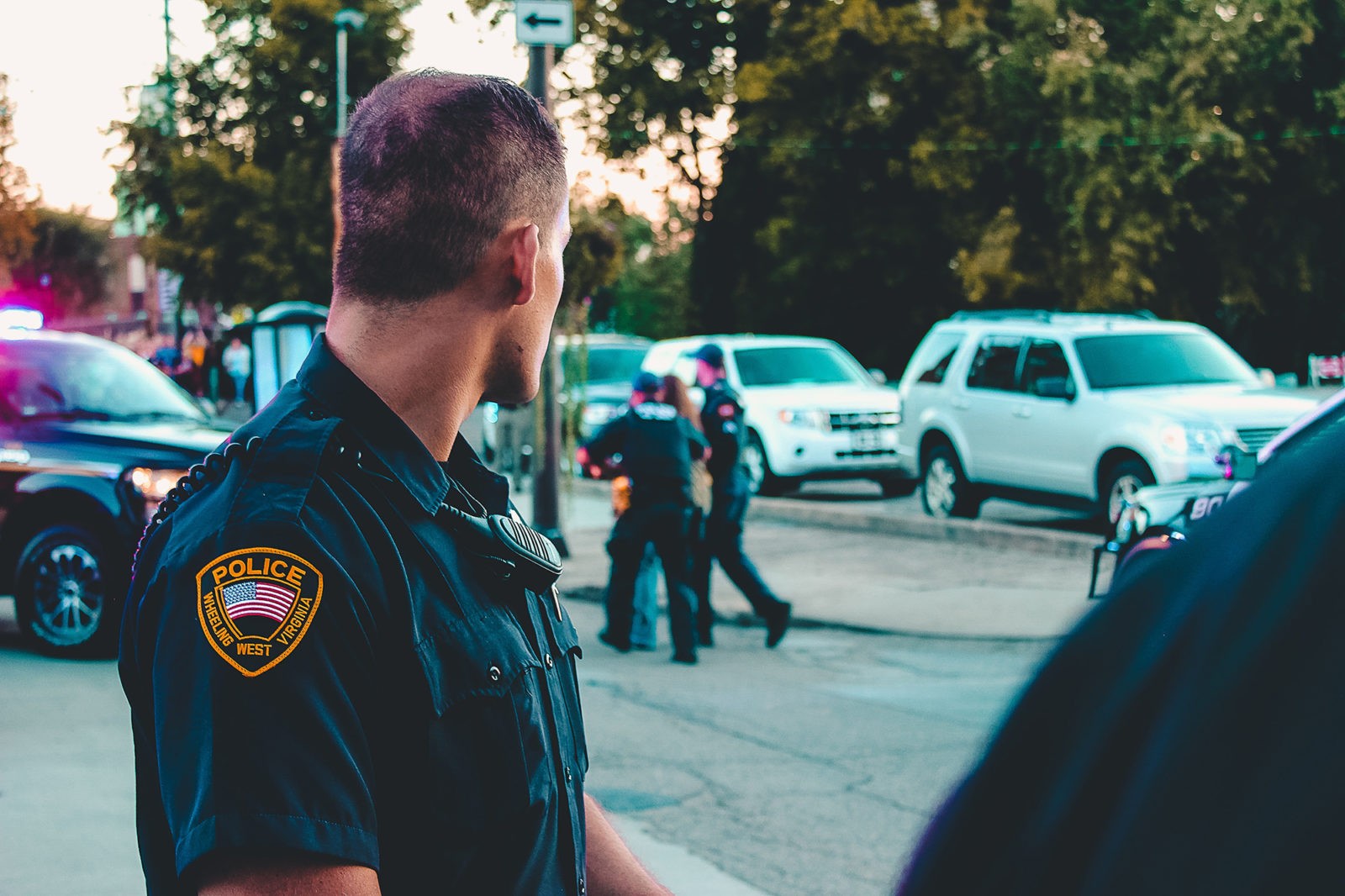Being a police officer is a dangerous job. Officers put themselves in harm’s way to protect our families and deserve our gratitude for that. But the police are not above the law. Having a badge and a gun does not give police officers the power to violate your constitutional rights. The Cleveland police misconduct lawyers at Bolek Besser Glesius are devoted to justice when government officials step over the line and violate the Constitution.
Civil rights protections from police abuse
 Both Ohio and federal law protect against police misconduct. Perhaps the most important protection is the federal statute, 42 U.S.C. § 1983. Passed as part of the Civil Rights Act of 1871, § 1983 allows a lawsuit against anyone who “under color of” state law deprives another of the “rights, privileges, or immunities secured by the Constitution” or federal statutes. In simple terms, § 1983 is the statute used to sue the police (or other local government officials) for violating a person’s constitutional rights.
Both Ohio and federal law protect against police misconduct. Perhaps the most important protection is the federal statute, 42 U.S.C. § 1983. Passed as part of the Civil Rights Act of 1871, § 1983 allows a lawsuit against anyone who “under color of” state law deprives another of the “rights, privileges, or immunities secured by the Constitution” or federal statutes. In simple terms, § 1983 is the statute used to sue the police (or other local government officials) for violating a person’s constitutional rights.
Section 1983 applies only to violations of federally protected rights. It cannot be used to vindicate legal protections under state law. Ohio, for instance, has separate protections for violation of rights conferred by the Ohio Constitution and statutes.
Police misconduct might violate the U.S. Constitution in several different ways. Some of the more common claims include:
- Excessive force and police brutality;
- Police shootings and wrongful death;
- Wrongful conviction and malicious prosecution;
- False arrest and false imprisonment;
- Illegal searches and seizures;
- Denial of medical care for detainees or inmates.
Unfortunately, proving a § 1983 case is extremely complex. To win requires navigating procedural traps and complicated standards of proof. Several technical legal questions must be considered before bringing this type of civil rights case, among them:
- How do I prove a violation of my constitutional rights?
- Who are the proper defendants in a police misconduct case?
- When are individual police officers liable for civil rights violations?
- Can the government be held responsible for constitutional violations by its employees?
- What damages can plaintiffs recover in 42 U.S.C. § 1983 cases?
Without a good lawyer, plaintiffs are likely to fall into one of the many pitfalls along the way. If your constitutional rights have been violated, you need to consult with an experienced Ohio civil rights lawyer.
What does “under color of” state law mean?
To win a civil rights case under § 1983, plaintiffs must first identify a defendant who acted “under color of” state law. That means the defendant was what’s known as a “state actor”—someone whose authority comes from state law. In police misconduct and prison abuse cases, this standard is often easily met.
Harder questions can arise though. For instance, in some excessive force and police brutality cases, the police officer might have been off-duty at the time of the incident. These cases require more complex legal analysis. Ultimately, the question is whether the defendant’s position of power made the violation possible. Relevant factors can include “whether the officer flashed a badge, identified himself as an officer, or arrested (or threatened to arrest) someone.” Swiecicki v. Delgado, 463 F.3d 489, 496 (6th Cir. 2006).
In some circumstances, private parties might also be “state actors” in civil rights lawsuits. One example might be a doctor providing medical care at a prison. The U.S. Court of Appeals for the Sixth Circuit, which has authority over Ohio federal cases, uses several different tests to resolve the question: (1) the public function test; (2) the state compulsion test; (3) the symbiotic relationship or nexus test; and (4) the entwinement test. Marie v. American Red Cross, 771 F.3d 344, 362 (6th Cir. 2014). Though each is different, these tests generally consider what the defendant was doing at the time of the violation, or the defendant’s relationship to the government itself.
Although sometimes straightforward, proving a defendant acted “under color of” state law can be a very fact-intensive legal question. It often requires a skilled civil rights lawyer.
When are Ohio police immune in excessive force and civil rights cases?
Another technical legal hurdle for victims of police misconduct (or other government civil rights violations) involves whether the government can even be sued at all.
Under a doctrine known as “qualified immunity,” police and other government officials cannot be sued in their personal capacities unless they violated a constitutional right, and the right was “clearly established” in the eyes of the law. At its core, this means the official be sued only if a reasonable person should have known that what they were doing was unconstitutional. A claim of qualified immunity is very common in § 1983 cases, and it can take an experienced Ohio civil rights lawyer to defeat the defense.
Some government officials enjoy even greater immunity than that. For example, judges generally cannot be sued at all for their decisions. They have what is known as “absolute immunity.” So long as the judge had the legal power to render a decision—even if wrong or unfair—the judge cannot be sued for it. Acts outside the traditional judicial role are not immune though. With that in mind, a judge would not be immune for something like a physical assault.
Immunity issues also arise in prosecutor misconduct cases. Prosecutors are absolutely immune from suit based on their roles as advocates in criminal cases. There are some important exceptions however. Prosecutors do not have absolute immunity for things like conspiring to fabricate evidence before a grand jury is convened, giving police advice about whether probable cause exists to make an arrest, or making defamatory and false statements to the press.
When is the government liable for police misconduct?
An even more complicated question is when a local government is liable for violations by its employees. Without an experienced Ohio police misconduct attorney, plaintiffs are setting themselves up for failure.
Actions against municipal defendants under § 1983 were authorized by the Supreme Court in Monell v. Department of Social Services, 436 U.S. 658 (1978). But local governments are not automatically liable every time their employees violate the Constitution. In fact, they are liable only when an official government “policy” or an informal government “custom” caused the violation. A policy or custom need not be a formal law passed by the government’s lawmakers though. It can instead be something established by “those whose edicts or acts may fairly be said to represent official policy.” Monell, 436 U.S. at 694.
Much of the litigation in this area revolves around what qualifies as an unofficial “custom.” According to Monell, an actionable custom is a practice that is “persistent and widespread” within the government. Pursuing municipal liability based on this theory is difficult. Showing a significant pattern of past violations is often necessary, and requires lawyers who know what they are doing.
One of the more common claims against municipalities in § 1983 case is for failure to train or supervise law enforcement. In City of Canton v. Harris, 489 U.S. 378 (1989), the Supreme Court held that to prove government liability for inadequate training, a plaintiff must show the government acted with “deliberate indifference” to an obvious need for training.
Keep in mind, these standards apply only to local governments—cities, counties, and townships. They do not apply to the State of Ohio or the federal government. A different set of laws applies to constitutional violations by those governments and their employees.
Damages in Ohio police misconduct cases
 Plaintiffs can obtain several different types of relief in § 1983 civil rights cases. The relief available includes injunctions against further unlawful action, declaratory judgments, compensatory damages, and punitive damages. Plaintiffs can also recover their attorney fees under 42 U.S.C. § 1988.
Plaintiffs can obtain several different types of relief in § 1983 civil rights cases. The relief available includes injunctions against further unlawful action, declaratory judgments, compensatory damages, and punitive damages. Plaintiffs can also recover their attorney fees under 42 U.S.C. § 1988.
With respect to compensatory damages, a prevailing plaintiff can recover out-of-pocket expenses caused by the violation. A plaintiff can also recover for emotional harm, or “pain and suffering,” even without physical injury. That said, the most serious cases often involve significant physical harm or even death. In those cases, pain and suffering awards can be substantial, sometimes reaching six- or even seven-figures. See, e.g., Champion v. Outlook Nashville, Inc., 380 F.3d 893 (6th Cir. 2004) (upholding a $900,000 pain and suffering award in an excessive force case).
Successful § 1983 plaintiffs can also recover punitive damages, designed to punish defendants for breaking the law, and to deter future violations. Although punitive damages cannot be recovered against government entities themselves, they can be recovered against individual government officials in their personal capacities.
Holding Ohio police accountable for violating civil rights
Robert F. Kennedy once said that “every community gets the kind of law enforcement it insists on.” There is no doubt that the police have a hard and dangerous job. And there is no doubt that the majority are brave, hardworking, and honorable public servants. They deserve our respect and gratitude. But they are not above the law. When they violate the Constitution, as a community, we must insist on holding them accountable.
If you or a loved one have been the victim of abuse at the hands of law enforcement, call the Ohio police brutality lawyers at Bolek Besser Glesius LLC. We can help with civil rights cases in Cleveland, Columbus, Akron, Lorain, Youngstown, Toledo, and all throughout Ohio.


